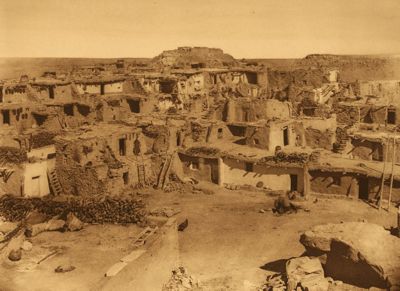
In this section of the novel, Bernard's character begins to change again. He loses his pride and his spirit sinks once again. He realizes that all the friends that he thought were real were in reality just an illusion. The Savage is a large factor in the humbling of Bernard. The Savages defiance to be shown at a large party was the ultimate downfall of Bernard's popularity. Bernard's pleadings with the Savage were to no avail and the men and women of the party began to doubt Bernard. The party-goers left, leaving Bernard alone. This helped Bernard come to the realization that these people were not his friends. Bernard began to see the superficiality of the society, seeing that these people were faking their real feelings towards Bernard. This section also shows how Bernard is very superficial himself. He lets fame and popularity influence his actions and thoughts. He himself reflects the societal tendencies.
Picture:http://www.cartoonstock.com/newscartoons/cartoonists/cgo/lowres/cgon137l.jpg

